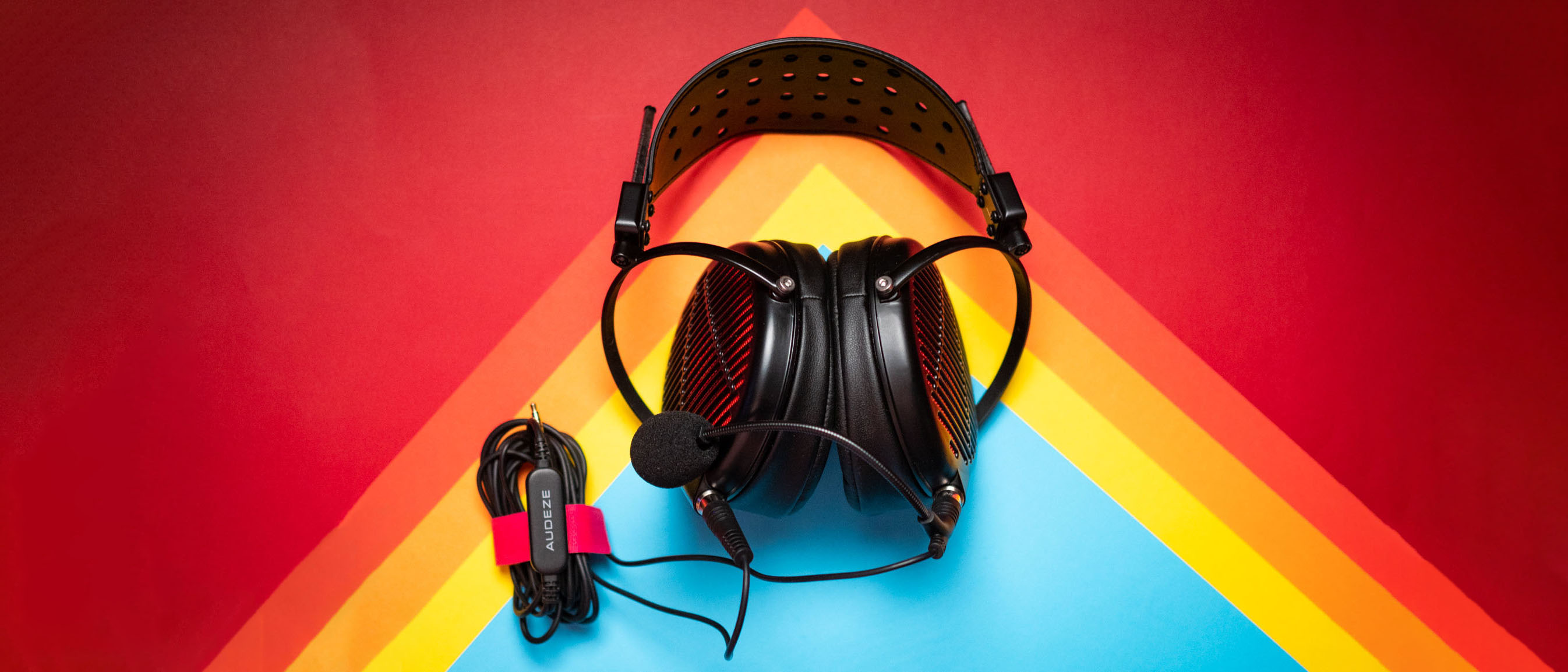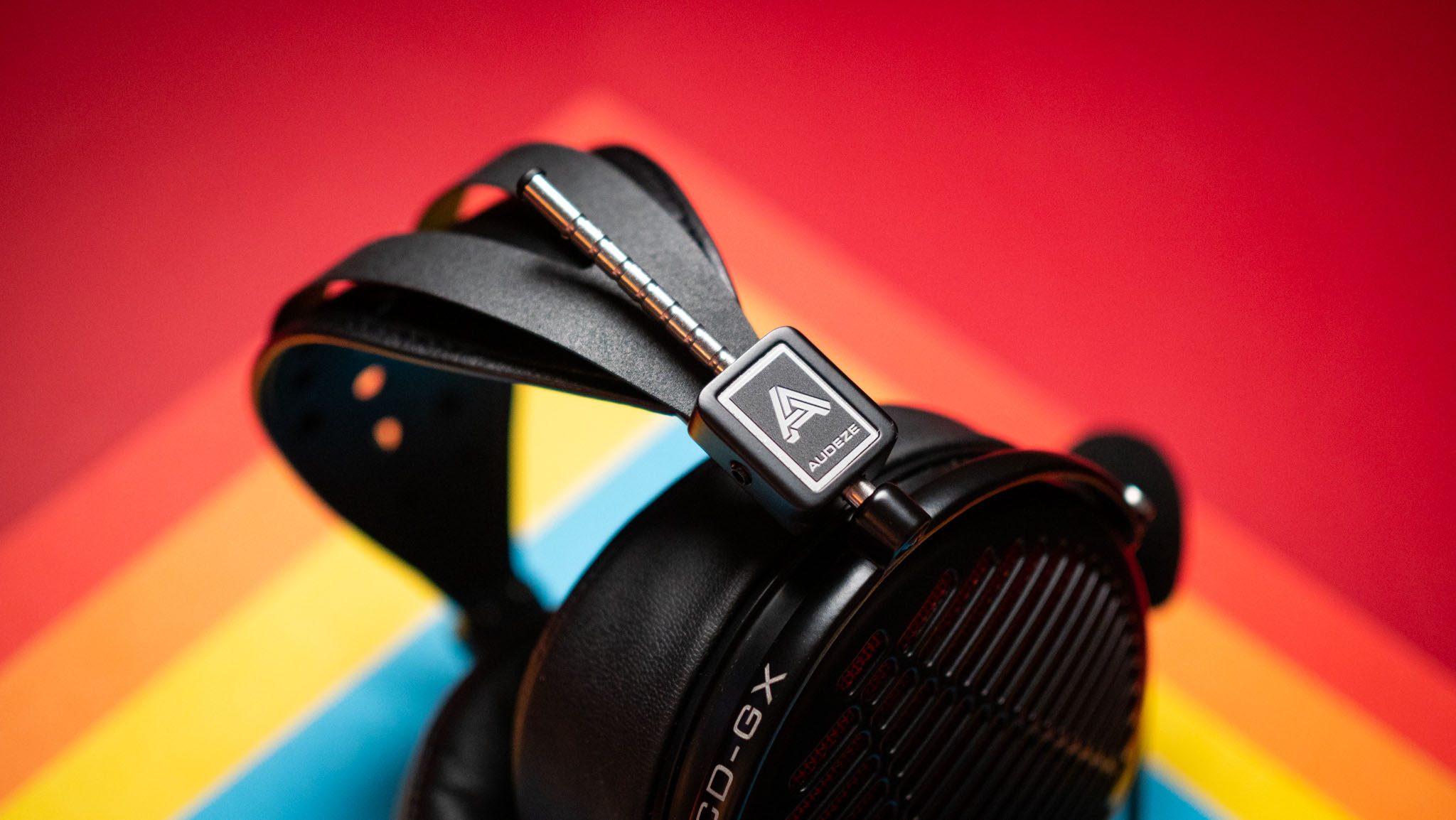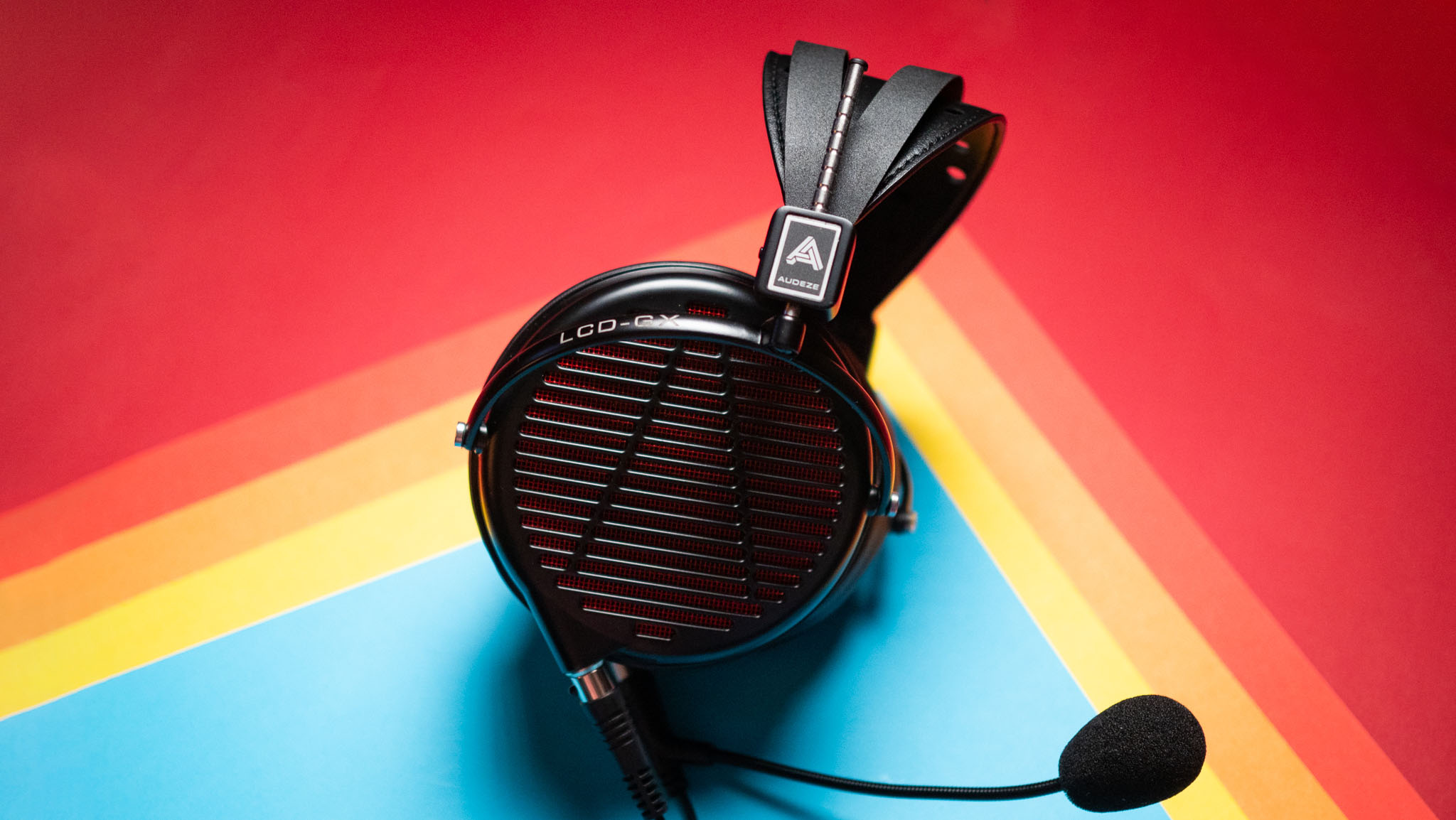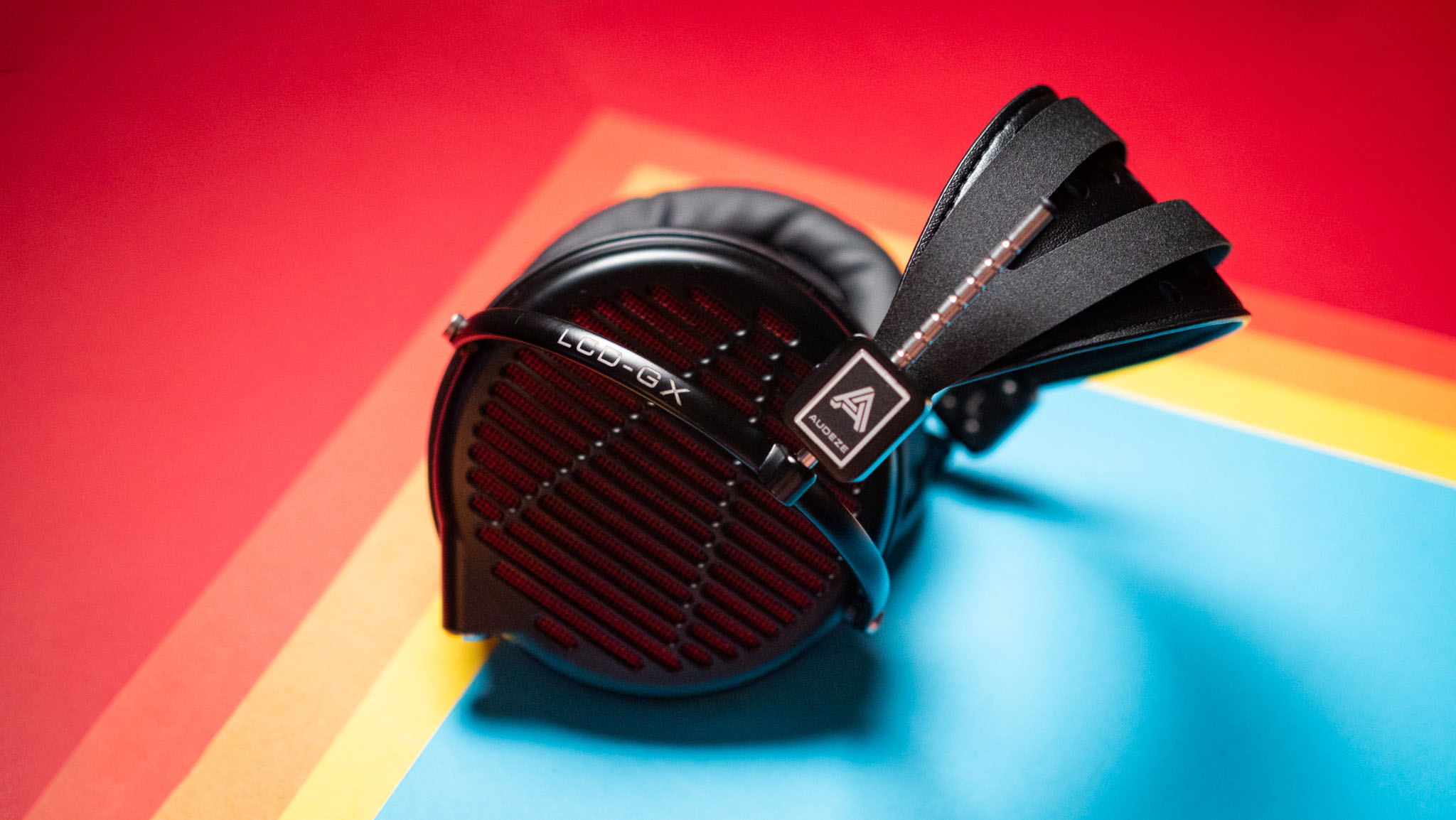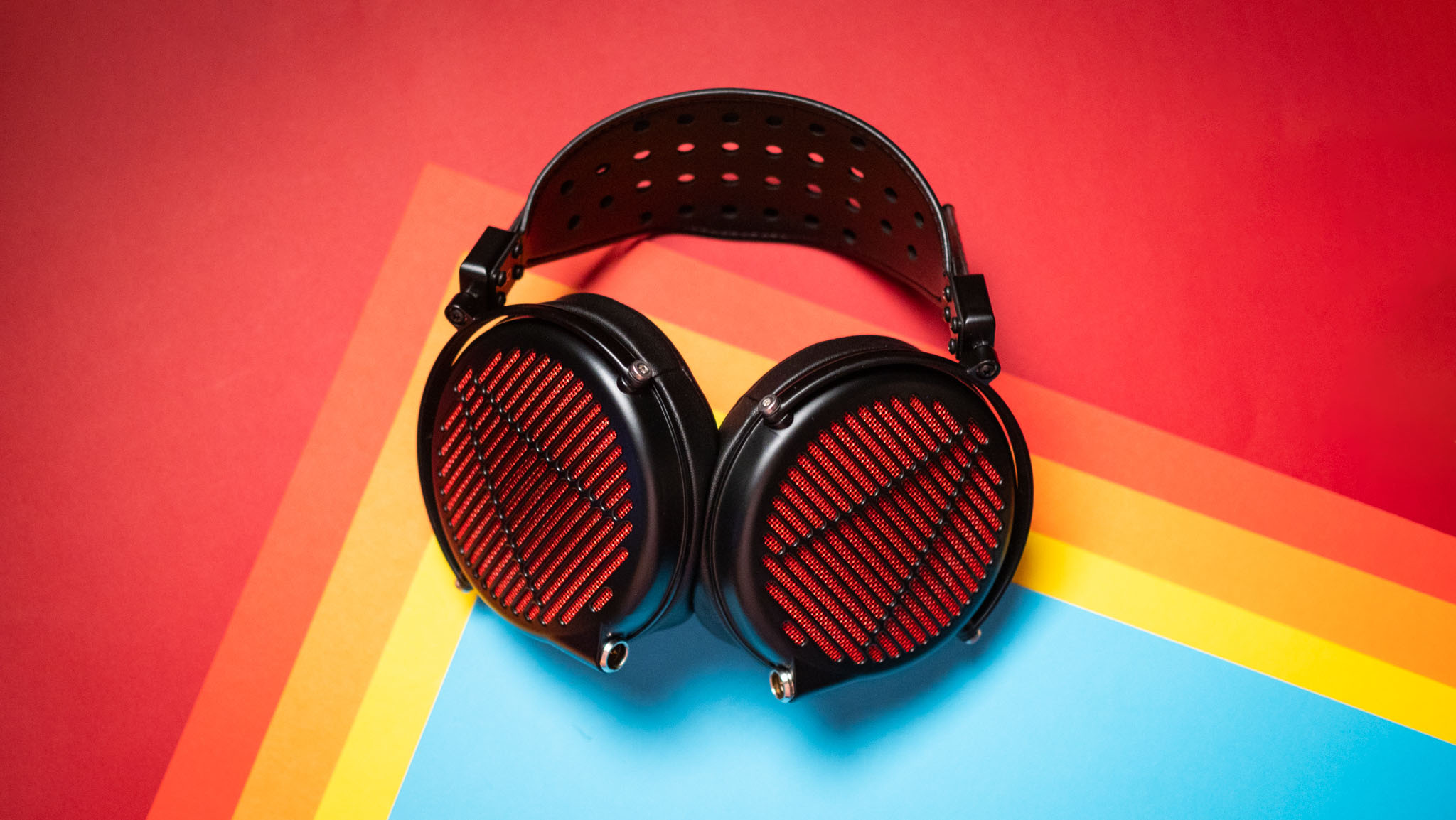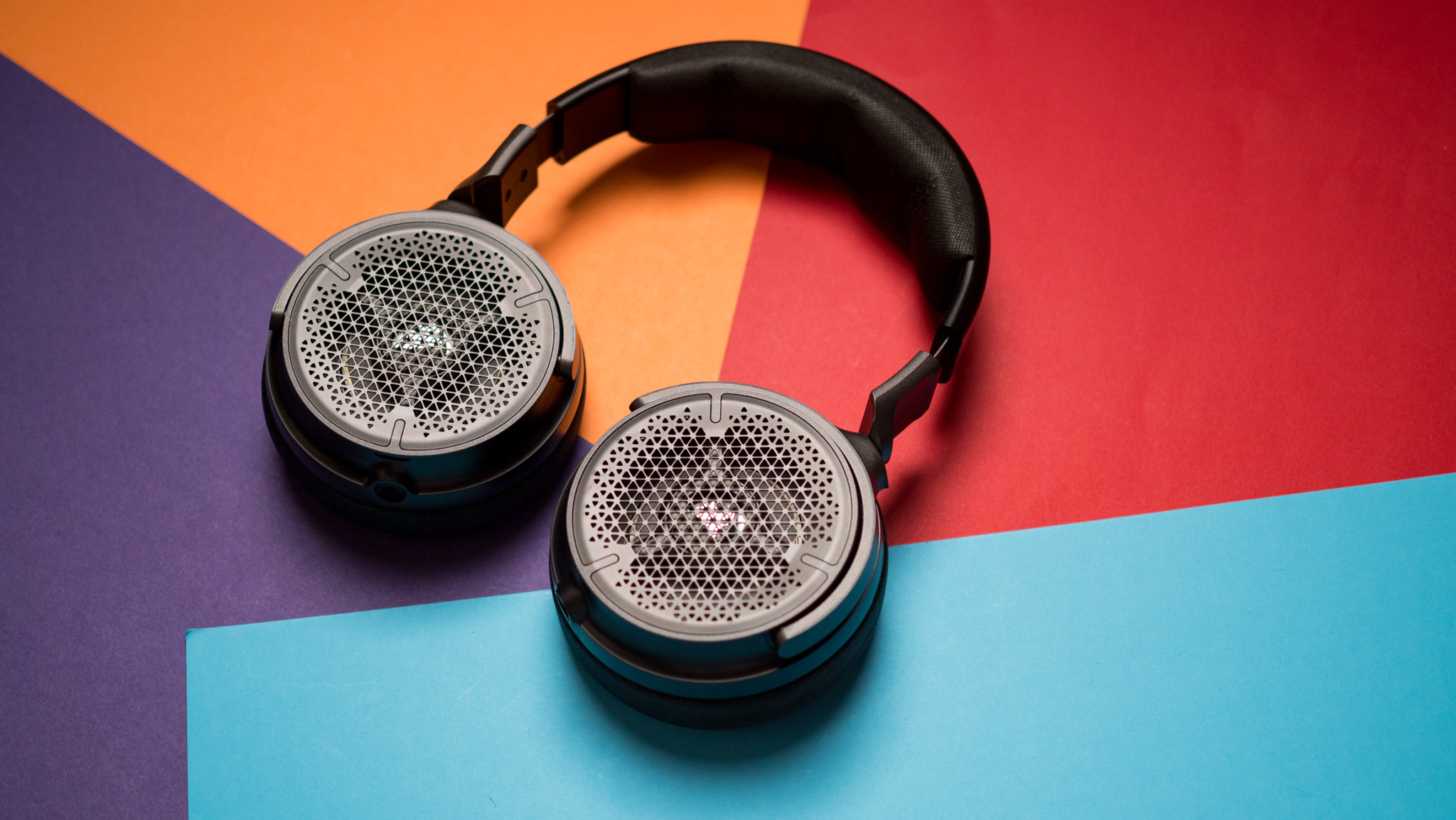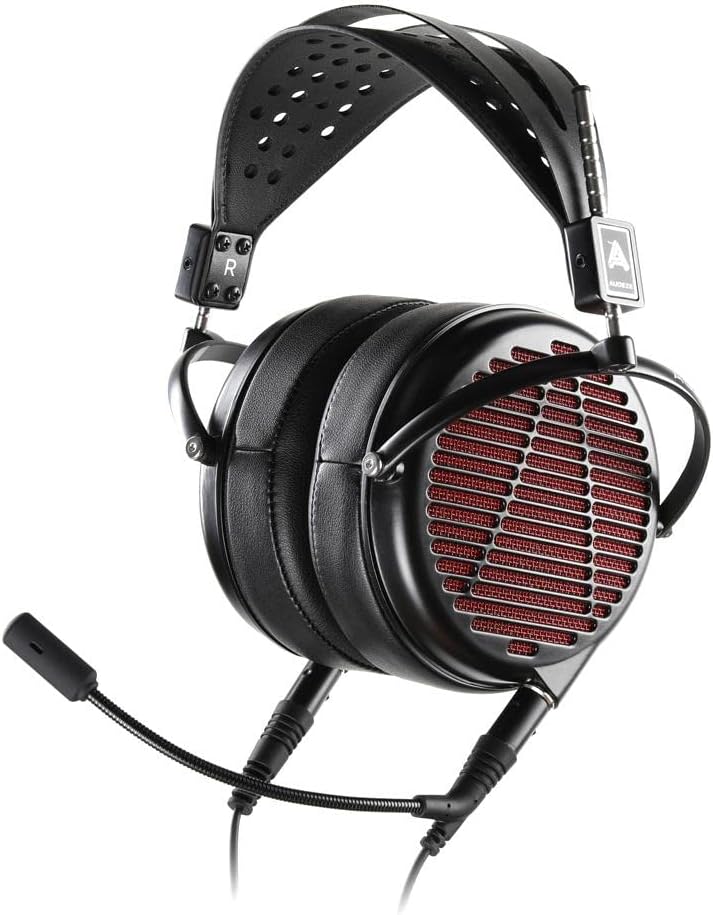Windows Central Verdict
The LCD-GX is nothing short of the best-sounding gaming headset currently available. It uses extra-large planar drivers that deliver an exquisite sound, and the warm presentation combined with the wide soundstage gives you a level of immersion that you don't get in this segment. The LCD-GX is built to last, has plush leather ear pads that are very comfortable and is relatively easy to drive. The only downside is the price; at $899, it is costlier than other gaming headsets by a considerable margin.
Pros
- +
Unmatched sound quality thanks to large planar drivers
- +
Terrific build quality
- +
Large ear cushions with exquisite padding
- +
Wide soundstage with vibrant bass and engaging mid-range
- +
Bundled travel case is outstanding
- +
Good-quality mic
Cons
- -
Ridiculously costly
- -
Heavy
- -
Needs a DAC to get the best sound
Why you can trust Windows Central
Audeze knows a thing or two about making great headphones; the brand's LCD lineup consists of some of the best audiophile products available today. They're also among the costliest headphones in the market, and with the LCD-GX, Audeze is trying to do something a little different.
The LCD-GX is a slightly modified version of the LCD-X, which has been a stalwart in Audeze's portfolio for over a decade. The headphones launched back in 2013, and they're used by enthusiasts, audio engineers, and recording studios. The LCD-GX retains the same basic design, but infuses it with red accent colors — this is a gaming headset, after all — and you get a secondary cable that has a boom mic attachment.
While the LCD-X costs $1,199, the LCD-GX is a bit more affordable at $899. That said, it is still exponentially costlier than the best gaming headsets, and it makes Audeze's other offering in this segment — the $299 Maxwell we've reviewed previously — a positive bargain.
But what are you getting with the LCD-GX, and is it worth the lofty asking price? I used the LCD-GX for over three months alongside traditional headsets, and it is in a league of its own.
This review was made possible with a review unit provided by Audeze. The company did not see the contents of the review before publishing.
Audeze LCD-GX: Price and availability
Audeze unveiled the LCD-GX in May 2019, and the headset is now available in all regions where the brand has an official presence. It retails for $899 on Amazon U.S. and Audeze's own website and is available for £897 (around $1,132) in the U.K.
The headset is in stock at most retailers, but if you're buying straight from Audeze, there's bound to be a two to three week delay before you get the product (as of writing). As is the case with the rest of the LCD portfolio, the LCD-GX has a three-year warranty as standard.
Audeze LCD-GX: Design and comfort
Audeze's audio products have a bold design that stands out, and the LCD-GX cranks things up a notch. The headset is nearly identical to the LCD-X I reviewed, but the biggest difference is the weight; the LCD-X weighs a hefty 612g and isn't really suited for marathon gaming sessions, and thankfully the LCD-GX comes in at a much more manageable 454g.
All the latest news, reviews, and guides for Windows and Xbox diehards.
Audeze says it was able to trim the weight by making changes to the Fluxor magnet array that's at the heart of what makes its products stand out. Let's continue with the design; the defining feature on the headset is the large grille over each earcup that uses a red and black color scheme. The grille is stylized to create the Audeze logo, and the design certainly grabs attention.
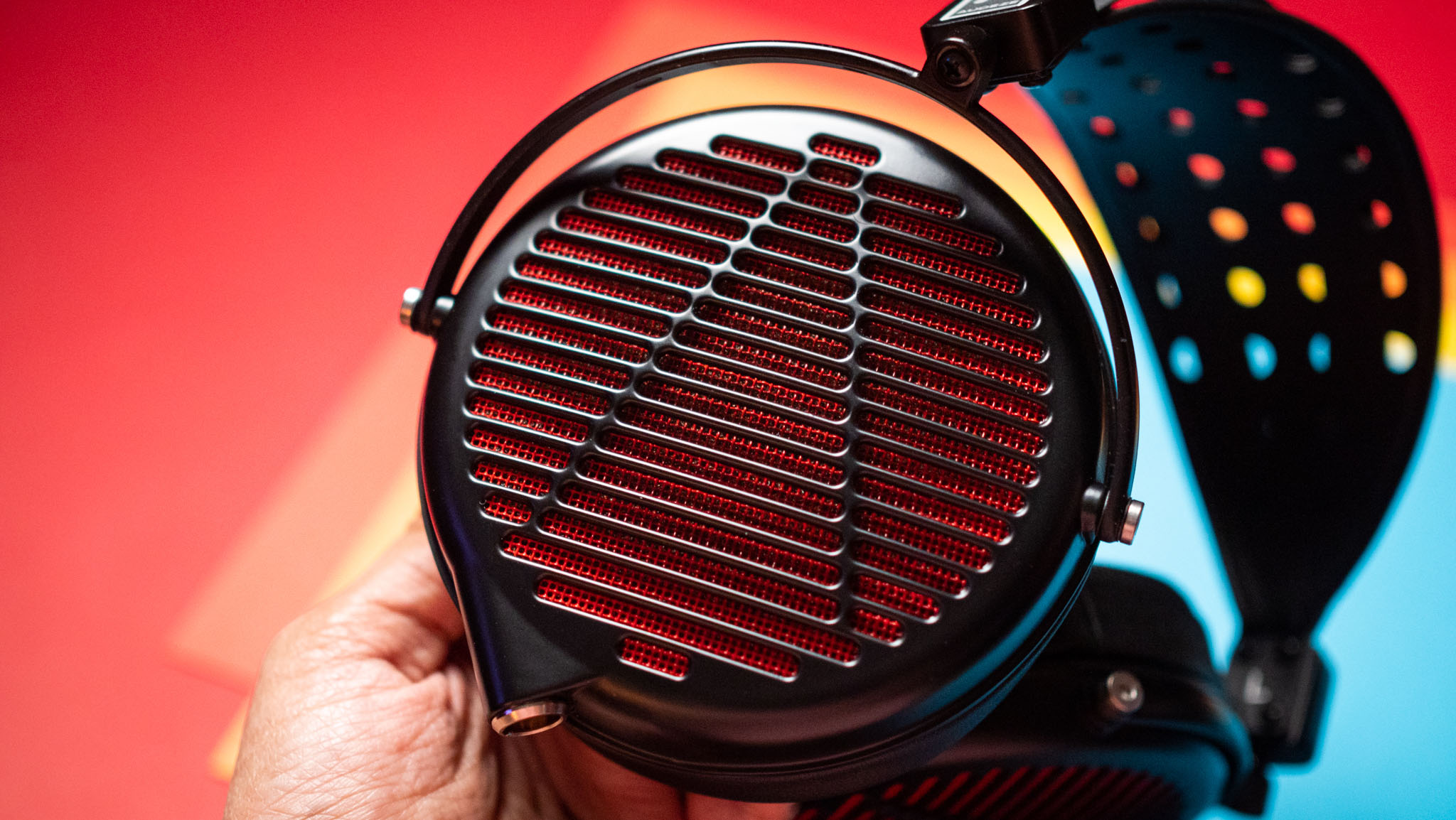
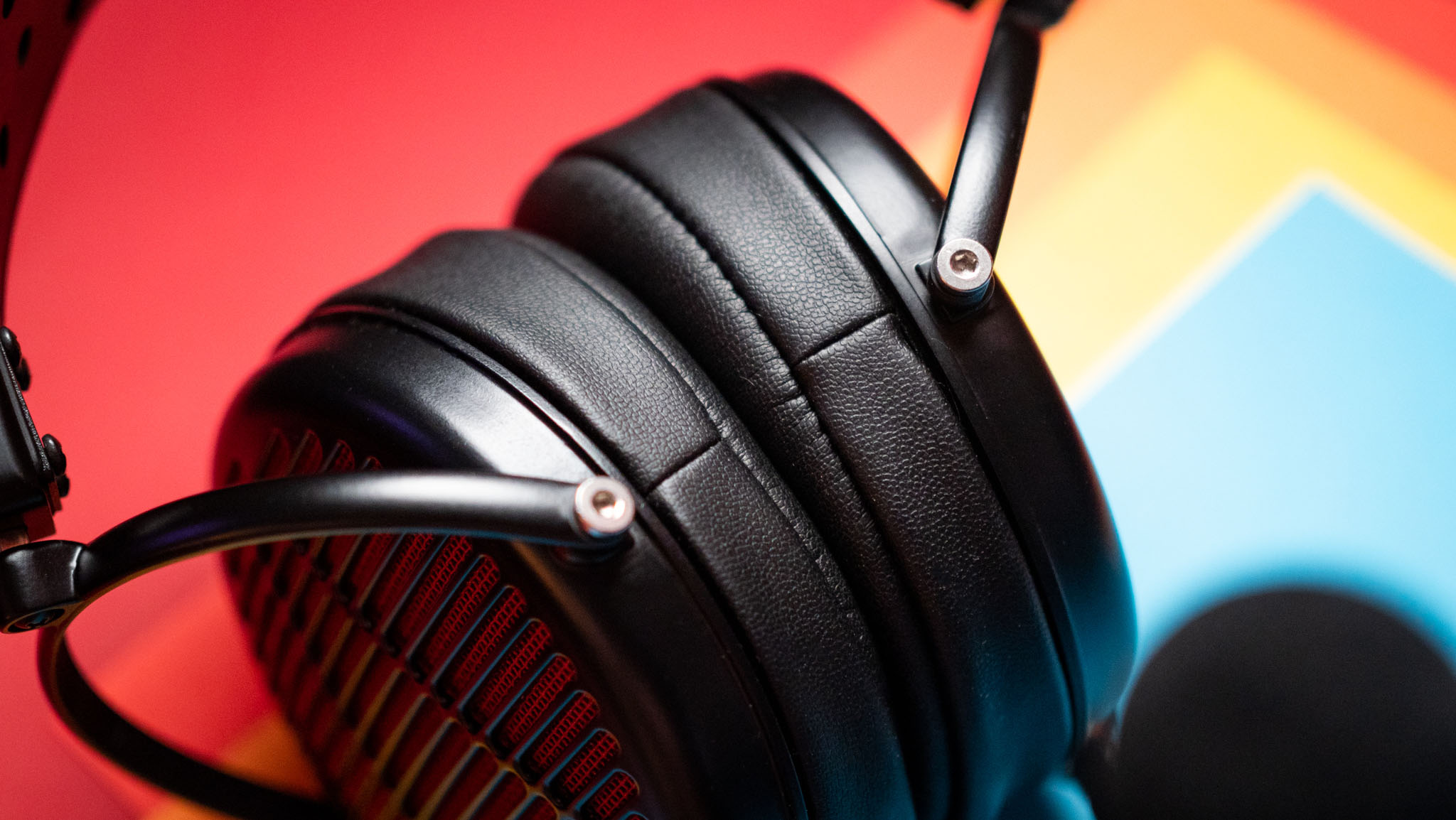
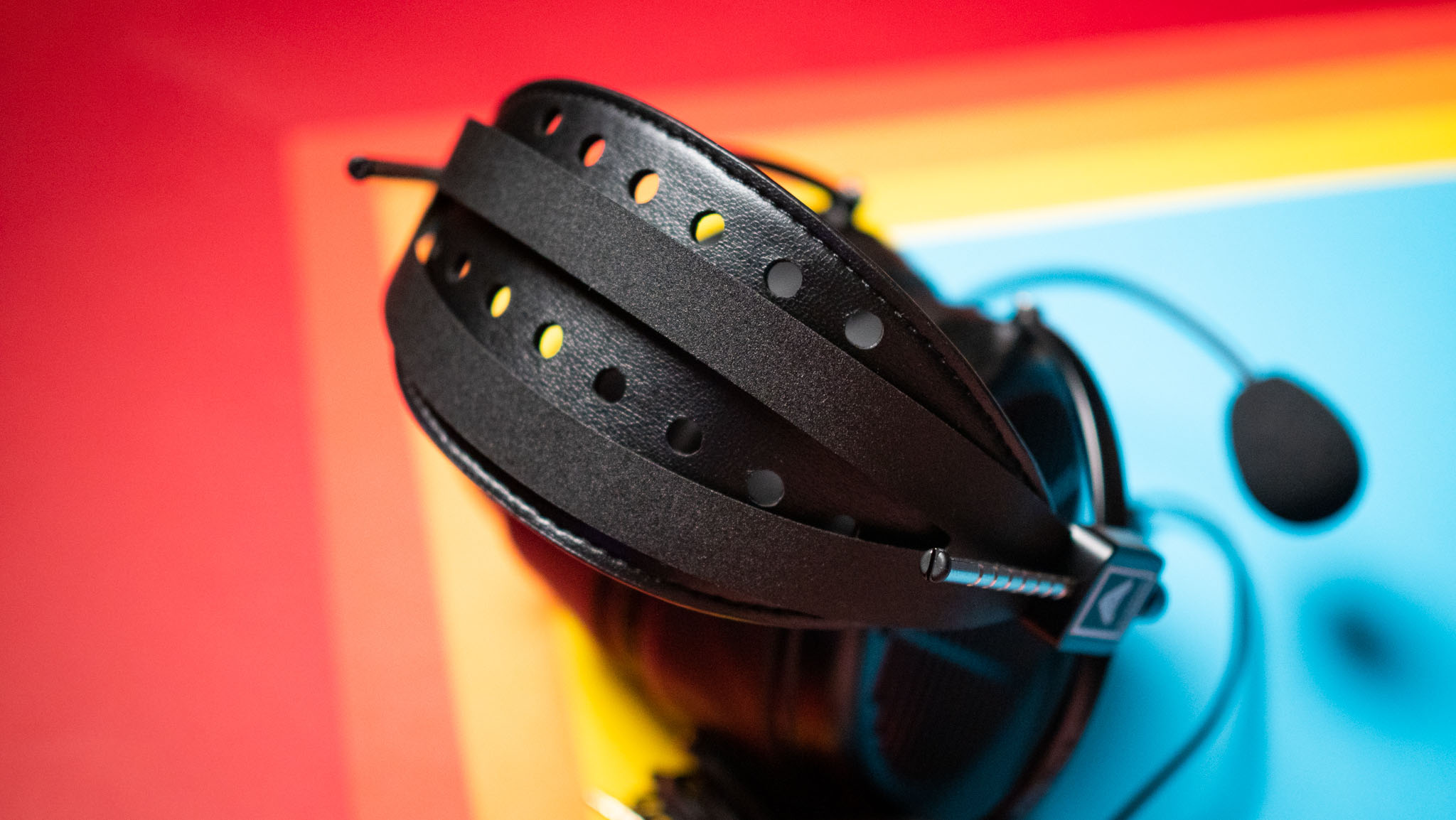
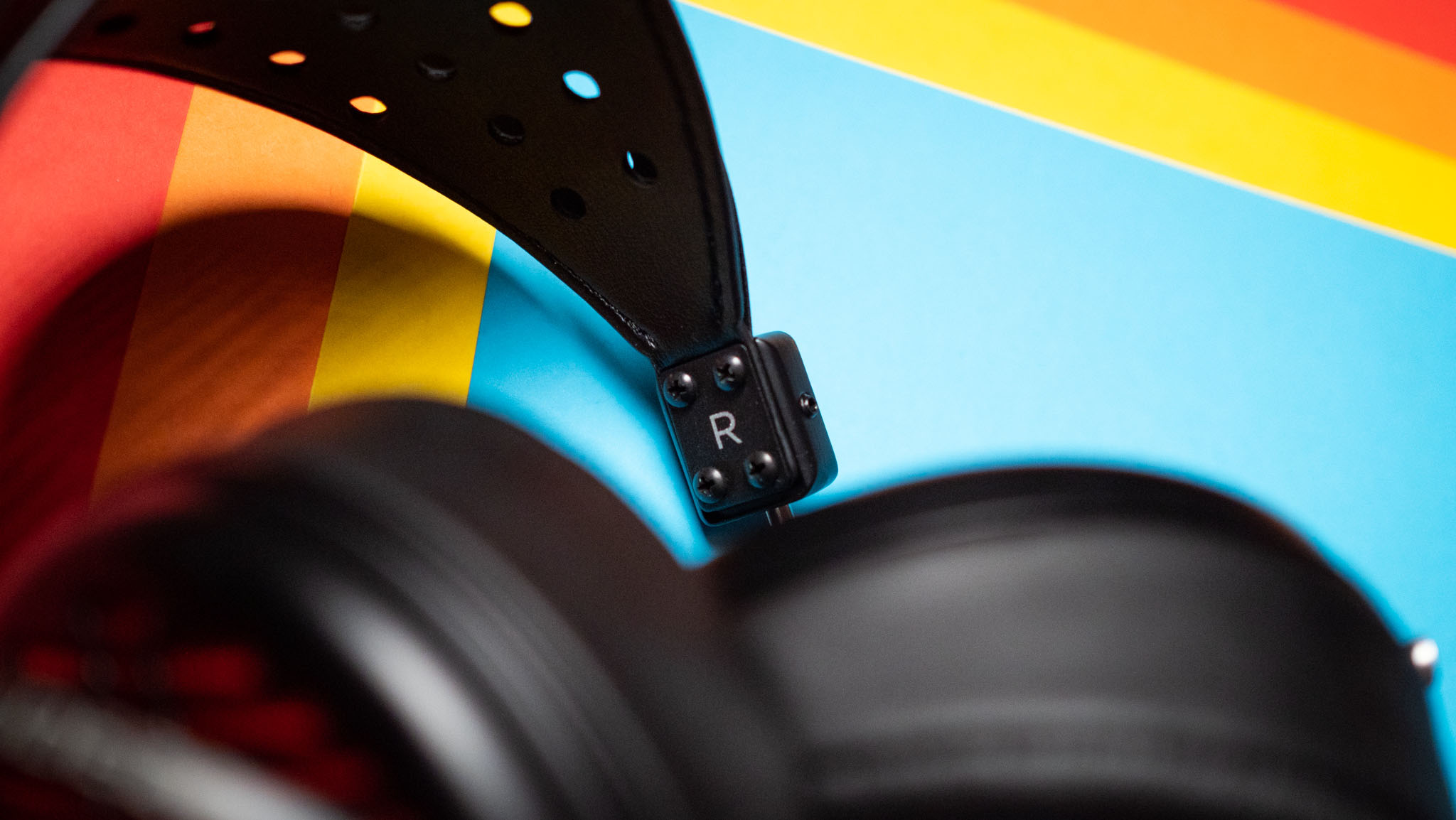
The LCD-GX uses an all-metal construction, and it has the best build quality of any gaming headset. The earcups are housed in an enclosure that is made out of magnesium, and they're connected to the headband via a large metal yoke that has good adjustability. The headband is also made out of metal, and it has a leather band on the underside that is ventilated.
The suspension headband does a good job distributing the weight of the headset, and even though it is heavier than most gaming headsets that have built-in accessories, there are no issues with comfort, even after extended use. One reason for that is the sheer size of the earcups; they are significantly larger than what you get on most gaming headsets, and that is down to the planar drivers used by Audeze.
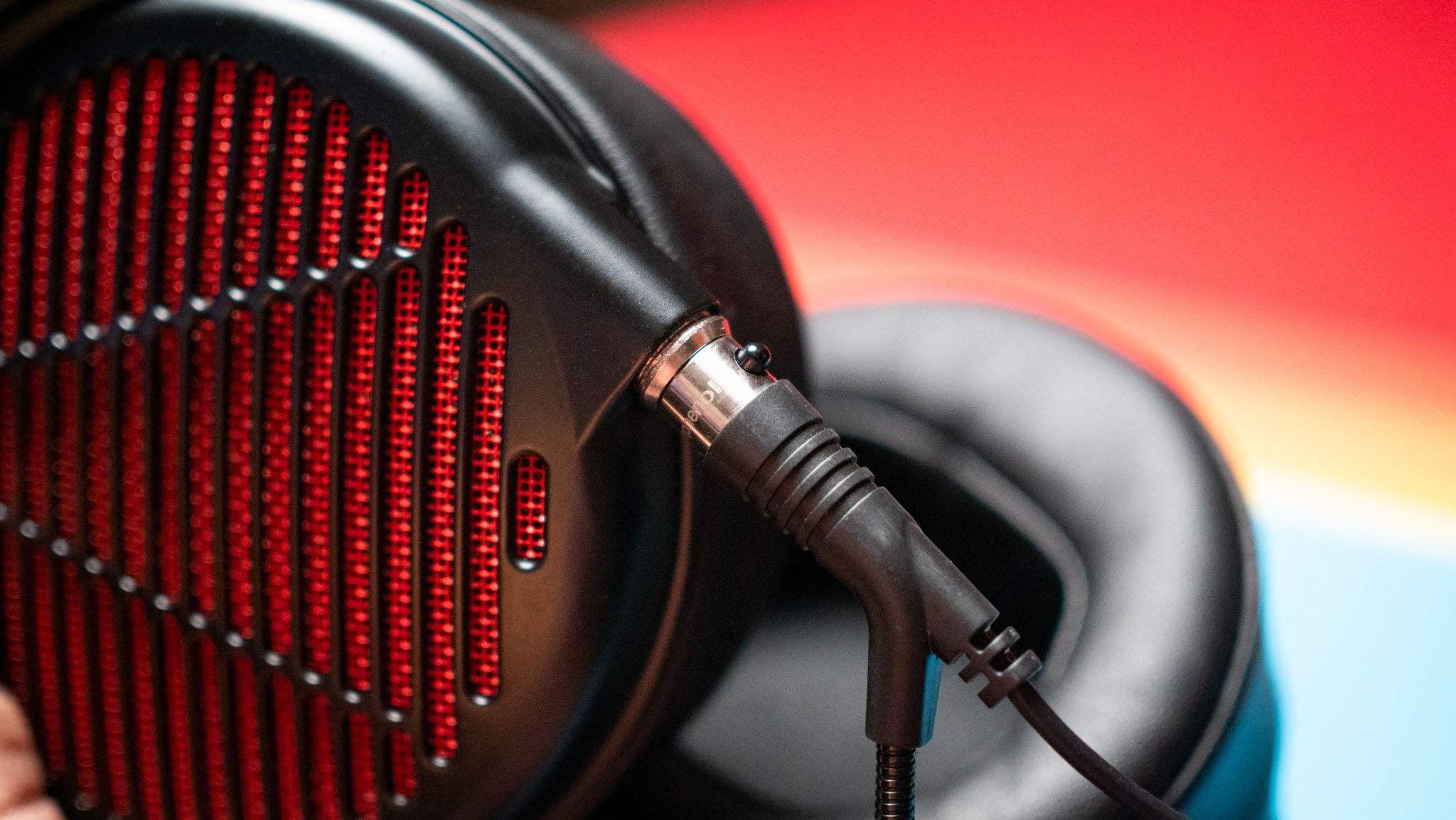
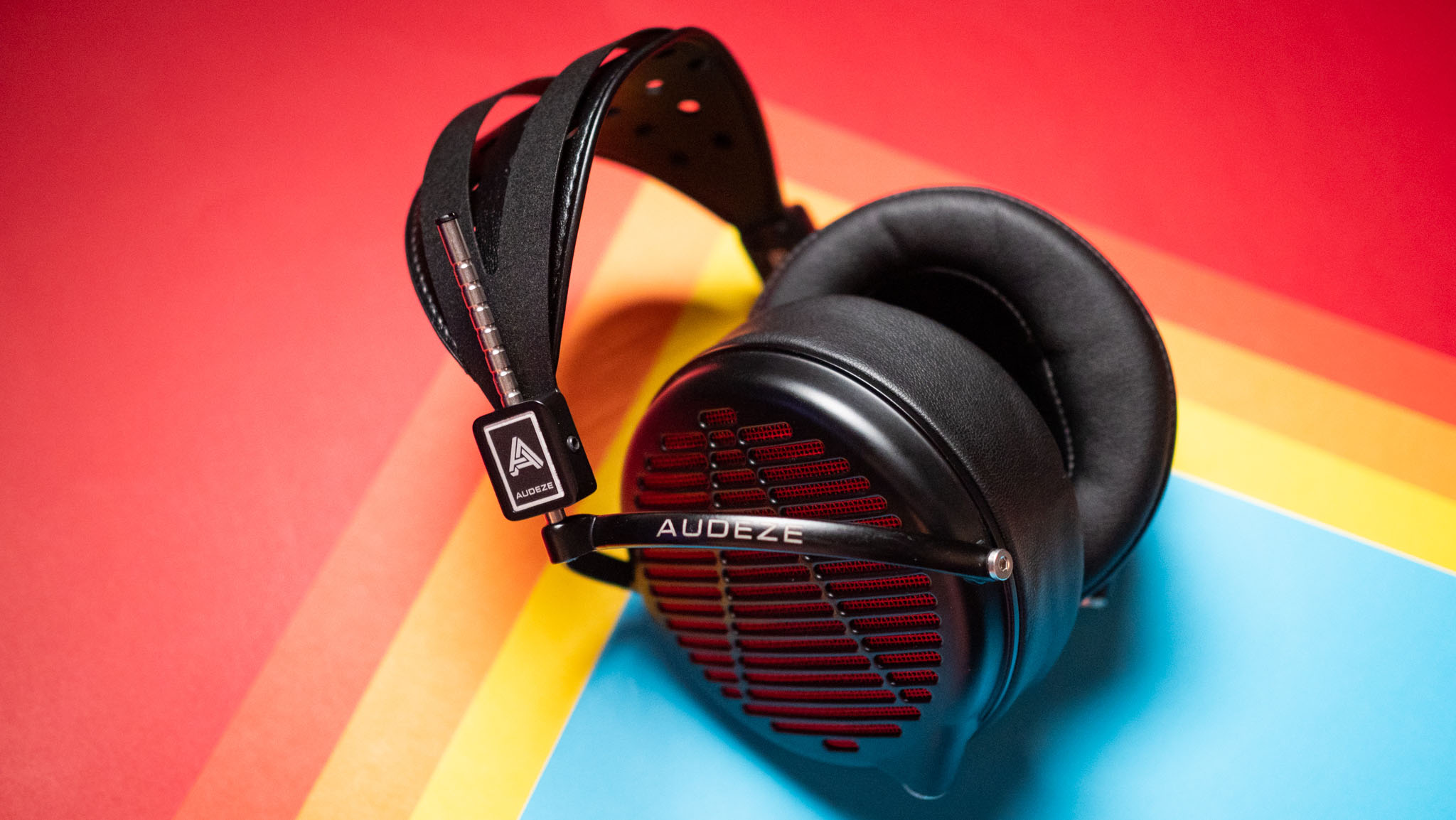
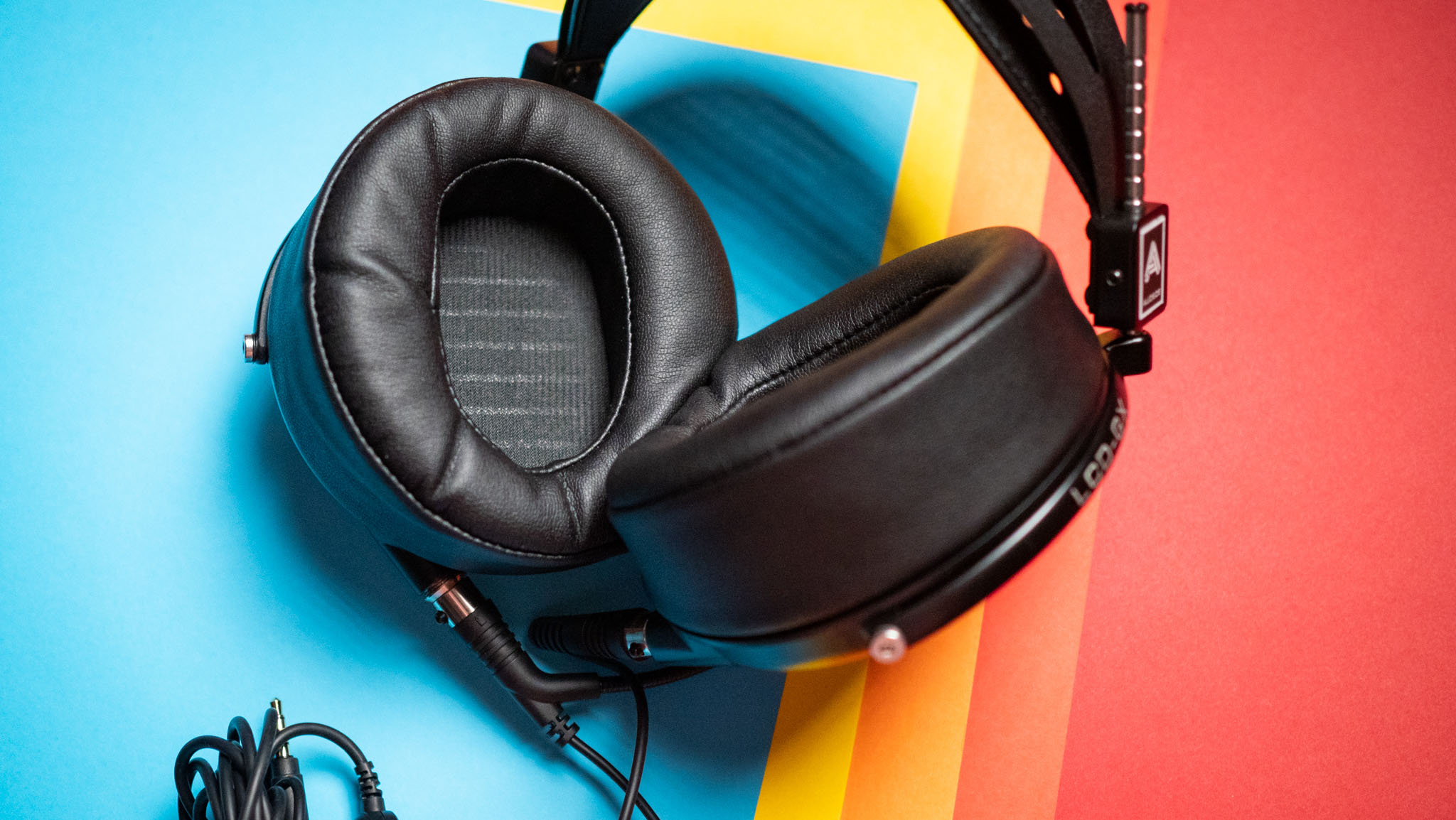
The earcups have thick memory foam pads, and they are very comfortable. Even though the ear pads don't have a ventilated design, they manage heat well, and I didn't notice any discomfort whatsoever. Like most other Audeze products, the LCD-GX features an open-back design; this leads to a more natural sound as the audio waves pass outward without getting reflected back into the enclosure.
The only issue on the comfort side of things is that the LCD-GX has a high clamping force, and it exerts pressure on the sides of your head. Audeze says this is by design, and while the clamping force isn't as high as what you get on the LCD-X, it is definitely noticeable.
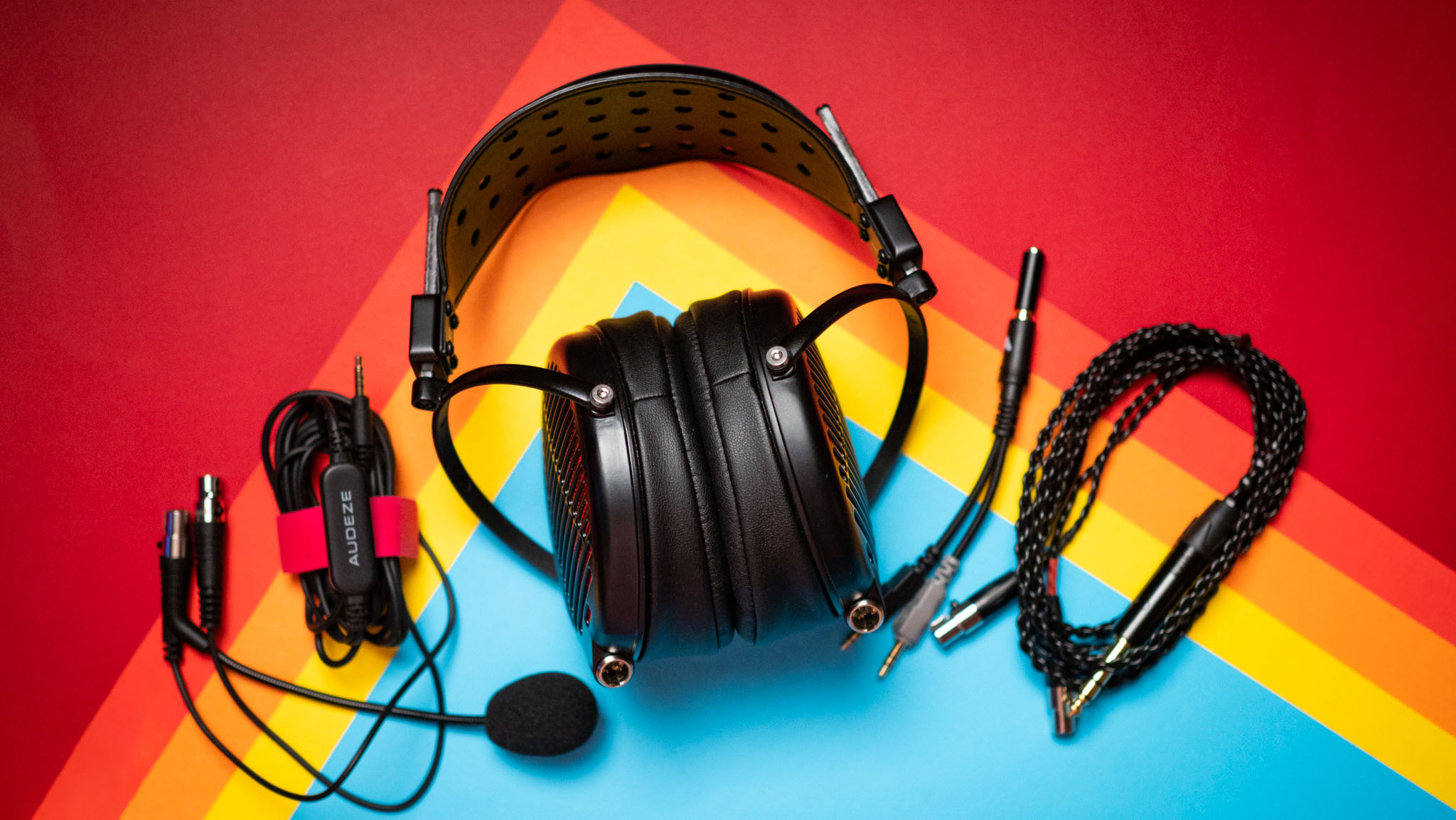
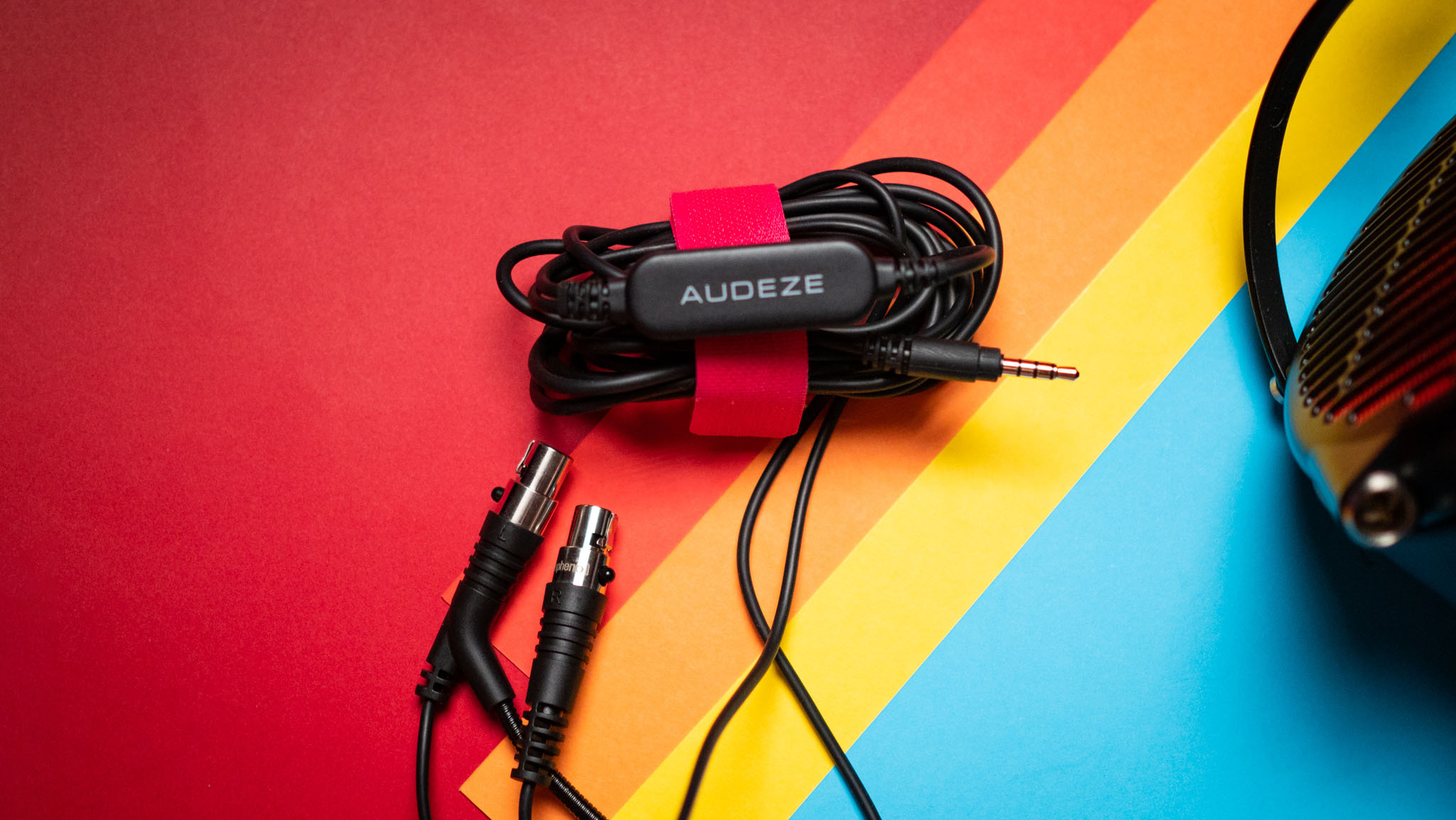
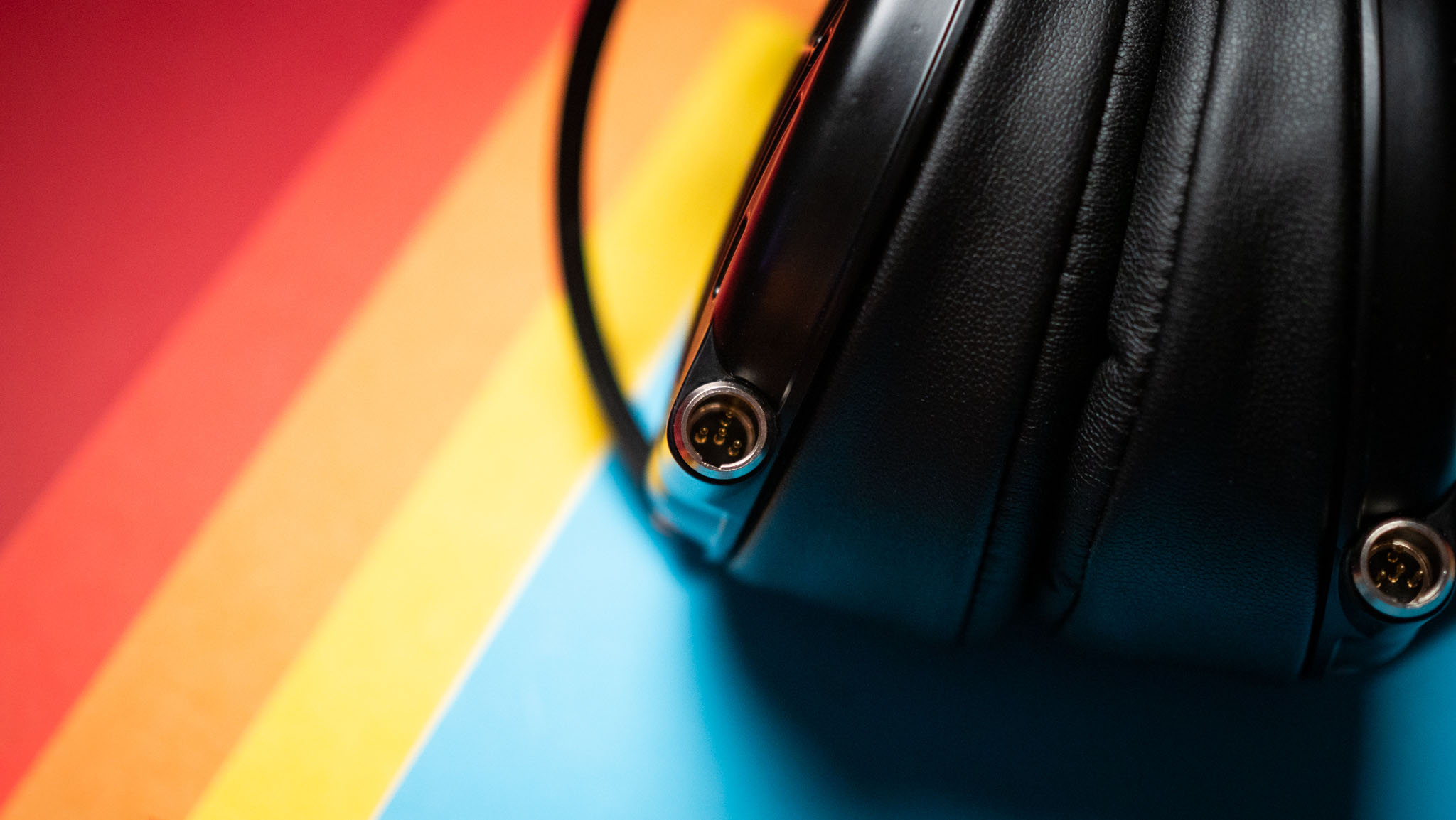
Each earcup has a 4-pin mini-XLR connector at the bottom, and Audeze bundles two cables in the box. You get a standard cable that comes with all Audeze products, and it has a braided design and ends in a 6.35mm connector. As the LCD-GX is aimed at gamers, you also get an additional 8-feet cable that has a boom mic, in-line hardware mute button, and a 3.5mm plug. This cable makes it easy to connect the LCD-GX to just about any device.
The LCD-GX isn't portable as such; you can't just throw the headset in a bag and carry it around. That said, Audeze bundles the headset in a hard shell case that is terrific, so if you need to take it on the road, you can do so without worrying about damaging the headset. The travel case has foam inserts designed to house the LCD-GX, and you have slots for both cables.
Audeze LCD-GX: Sound quality
The LCD-GX is all about delivering the best sound quality of any gaming headset, and it certainly has a lot to offer in this area. While most gaming headsets use 50mm dynamic drivers, the LCD-GX has 106mm planar magnetic drivers that are custom-built by Audeze.
As a very high-level overview, regular dynamic drivers consist of a magnet that covers a coil attached to a diaphragm, and electrical current flowing through this coil moves the diaphragm to deliver sound. Because the design isn't inherently challenging, dynamic drivers are on the smaller side and easy to manufacture.
Planar drivers, on the other hand, utilize a slightly different system to generate sound. The diaphragm has a conductive layer that covers its width, and it is sandwiched between two magnets. An electromagnetic current delivered to the conductive layer results in sound, and because the entire diaphragm moves, you get low distortion, fast attack — particularly with bass — and increased accuracy and detail retrieval across the entire frequency range.
The downside to planar drivers is that they're bulky — as they need to have two sets of magnets covering the entire diaphragm — and they usually have higher power requirements. However, the LCD-GX is easy enough to drive with any source; it has a sensitivity of 100dB/1mW and an impedance of just 20Ω, so you can use it with your phone, notebook, or the default audio port on your motherboard.
That said, you will need a DAC to take advantage of what this headset can achieve. I tend to prefer Fiio as the Chinese brand delivers a neutral sound and excellent value, and the Fiio K7 is a standout choice that pairs incredibly well with the LCD-GX. It also has a 6.35mm port that lets you use Audeze's bundled braided cable. Audeze recommends a source that can deliver 250mW of power, and any decent DAC hits that figure with ease.
Coming to the sound, the LCD-GX is unlike any other gaming headset available today. The large planar drivers combined with Audeze's tuning deliver a sound that is richer and wonderfully detailed. The headset has a vibrant bass with a lot of vigor and energy, and you get a satisfying rumble that doesn't bleed into the other frequencies.
The mid-range is where the LCD-GX truly stands out; it has excellent detail retrieval, and this is immediately evident while playing games. Vocals come through with plenty of clarity, and there is no distortion whatsoever. The treble is clean and airy, but it doesn't extend too much, and you don't get any sibilance.
Overall, the LCD-GX has a warm presentation that clearly makes a difference while gaming. The headset is just as well-suited for listening to music, and it has an inviting soundstage that gives you a level of immersion you won't find even on the best gaming headsets.

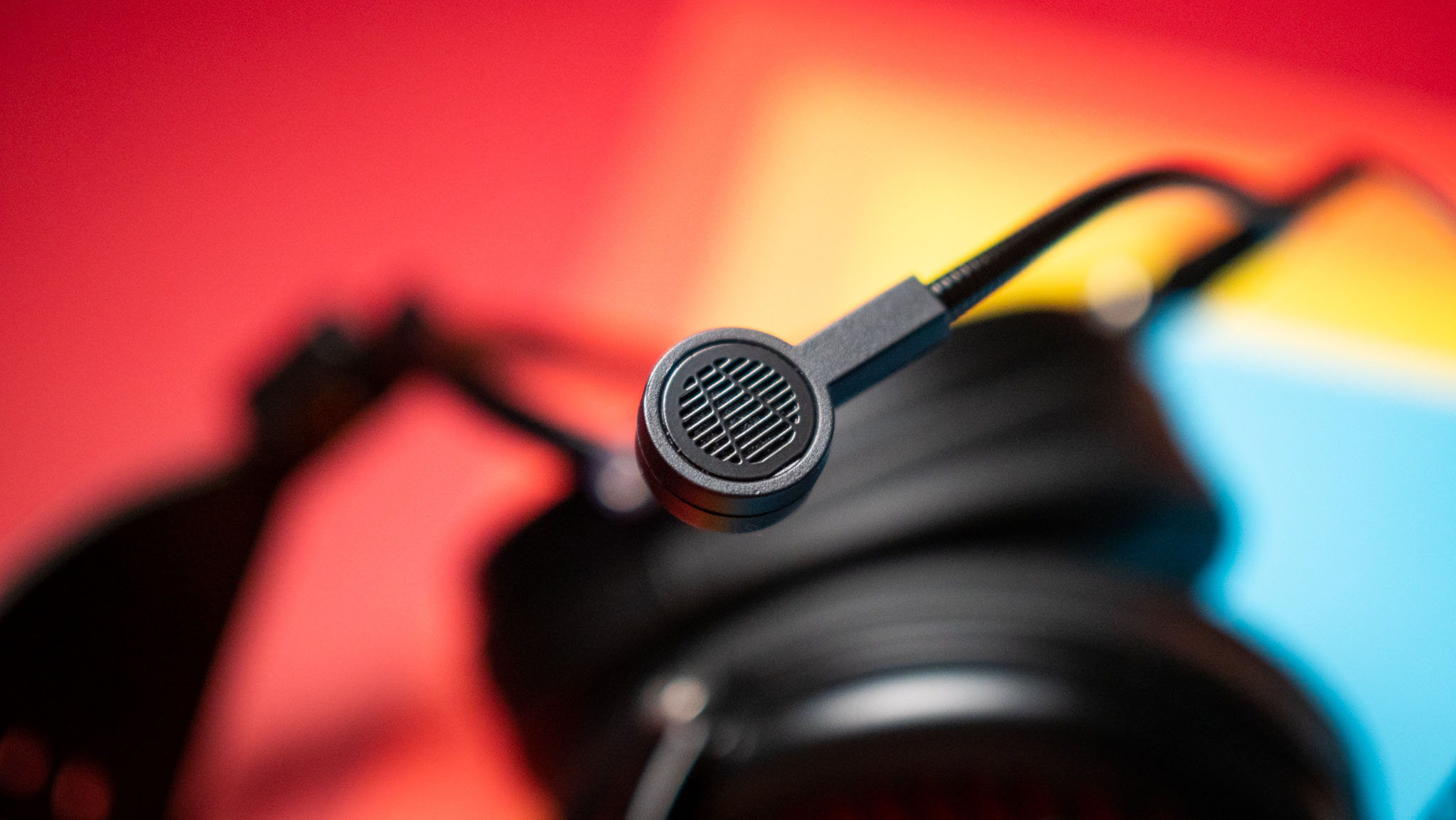
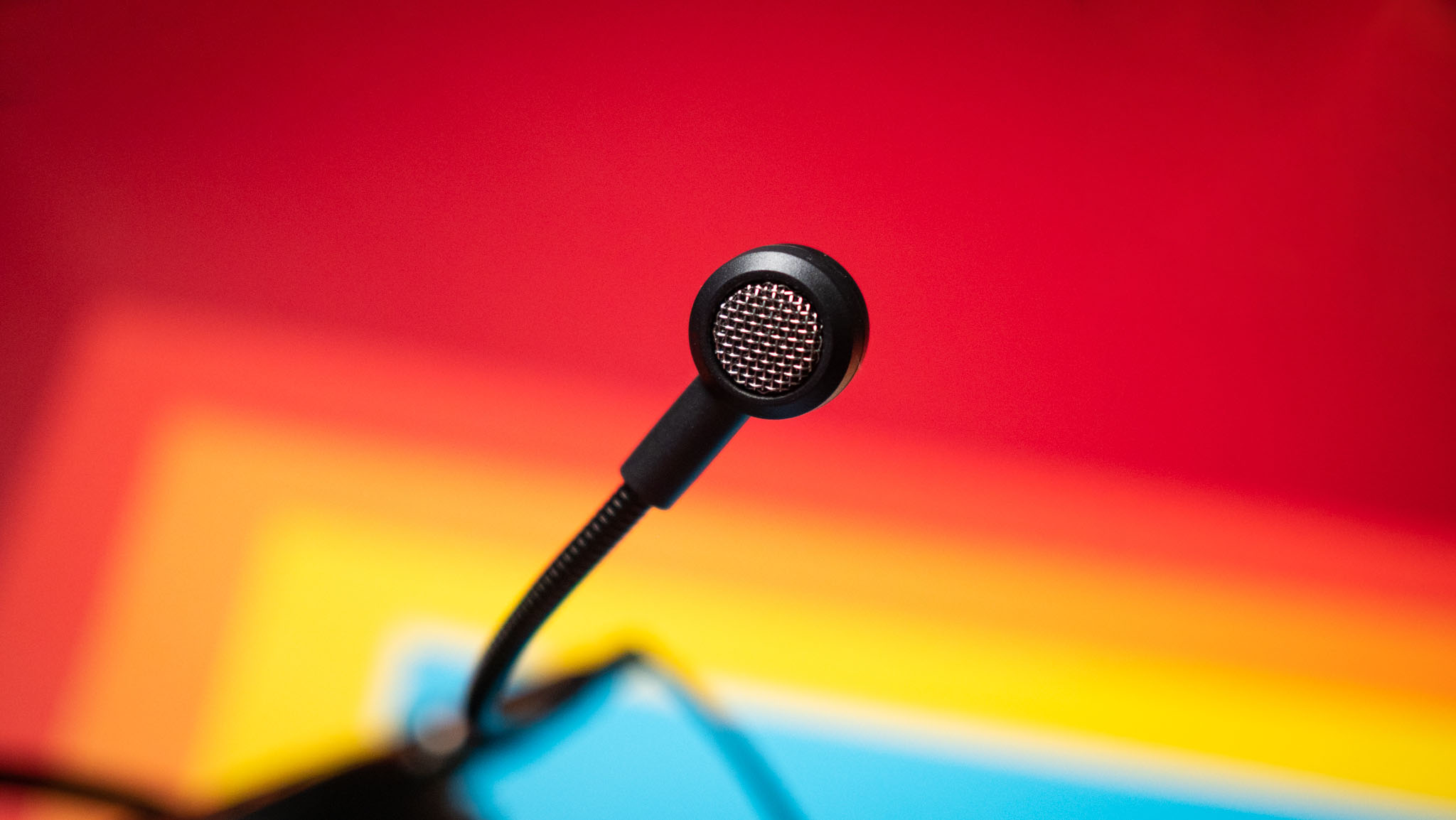
The mic is pretty good too; it picks up sound with ease, and Audeze bundles a filter that reduces sibilance. That said, it doesn't isolate any external sounds, so if you have a mechanical keyboard, you'll need to use a utility like NVIDIA Broadcast to tune out ambient sounds.
Audeze LCD-GX: The competition
If you want a gaming headset that prioritizes great sound, you should take a look at Corsair's Virtuoso Pro. The headset has 50mm drivers, and like a lot of audiophile gear, it uses an open-back design that allows sound to filter out. It is considerably lighter than the LCD-GX, and as I noted in my Virtuoso Pro review, it has phenomenal sound quality. You don't get any of the extras that are standard on gaming headsets, but at $199, it is a decent value.
Audeze's Maxwell is another option to consider if you want a gaming-focused headset from the brand. It also uses planar drivers, but the closed-back design doesn't have the same inviting soundstage that you get on the LCD-GX. That said, they connect over 2.4GHz, and the battery life is outstanding. Coming in at $299, they're also much more affordable.
Audeze LCD-GX: Should you buy it?
You should buy this if:
✅ You want the best sound quality of any gaming headset
✅ You need a comfortable design that's built to last
✅ You need a headset with a good mic
You shouldn't buy this if:
❌ You want a good value
❌ You need a lightweight headset
For most gaming headsets, brands have to balance a variety of features rather than just deliver great audio; in fact, I used a few headsets over the last decade where sound quality was a distinct afterthought. With the LCD-GX, however, sound quality takes precedence over just about anything else; this isn't just a gaming headset but an audiophile masterpiece that's aimed at gamers.
So it goes without saying that the LCD-GX is better than anything else when it comes to sound quality — you just don't get such a nuanced sound out of any other gaming headset available today. A big part of that has to do with the large planar drivers, but it is also down to Audeze's tuning; the brand made a few tweaks to its signature tuning to make the LCD-GX more palatable for gaming.
Then there's the fact that the LCD-GX is a magnificent choice if you want headphones that bring out granular details in music. The only downside is the cost — $899 is a lot of money for a headset, even one that sounds as good as this. If you just need a gaming headset, there are plenty of choices that give you decent sound and additional features while costing less than a third of what you'll need to pay for the LCD-GX.
But if you want the best tonality of any gaming headset and are willing to invest in a decent DAC, then yes, the LCD-GX is an obvious recommendation. I test a lot of enthusiast headphones, and the LCD-GX manages to hold its own against products that cost over twice as much, and that's a sizeable achievement in its own right.

Harish Jonnalagadda is a Senior Editor overseeing Asia for Android Central, Windows Central's sister site. When not reviewing phones, he's testing PC hardware, including video cards, motherboards, gaming accessories, and keyboards.
